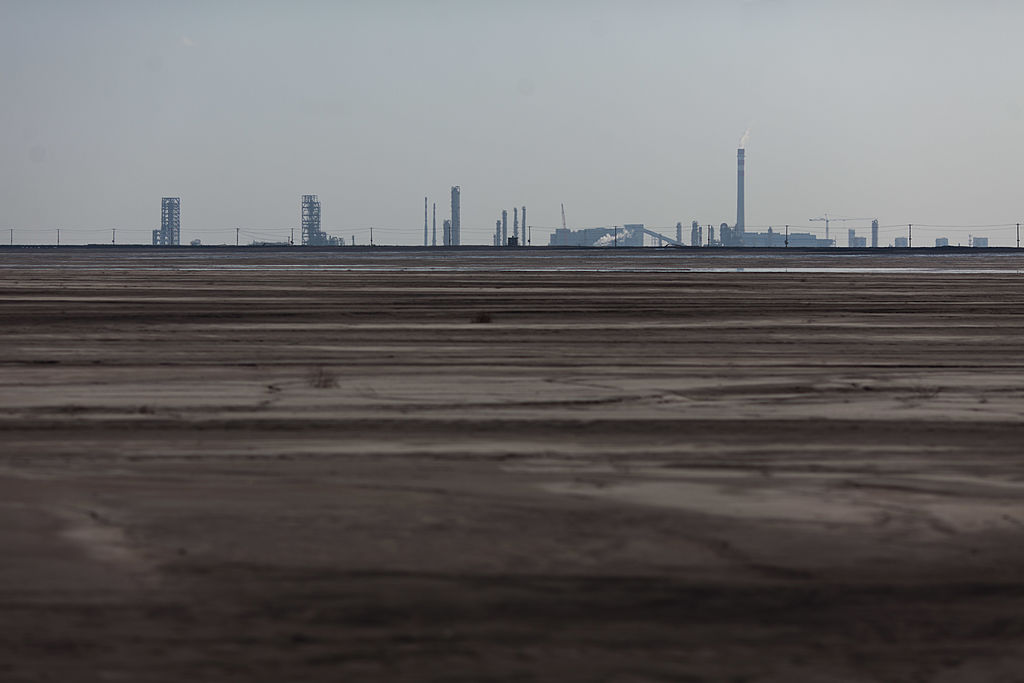
As one of Australia’s most experienced past defence ministers, Kim Beazley has strategic issues still front of mind. He brought this strategic lens with him when he became governor of Western Australia and used the weight of that position to drive discussion on the strategic importance to the nation and its allies of the rare earths and other materials being mined in Australia.
He’s alarmed about China’s near global monopoly over the processing of these minerals that are becoming increasingly crucial for both the manufacture of military equipment and the efficiency of green technology, such as electric vehicles, to reduce emissions in the face of climate change.
Beazley notes that advanced weapons systems that nations such as Australia will rely on to give them an edge in deterrence or in conflict can’t be manufactured without rare earths.
The well over 3,000 items of US military equipment requiring rare earths include crewed and uncrewed aircraft, satellites, nuclear weapons, missiles, surface warships and submarines, advanced radars and combat systems, and army vehicles such as tanks.
Next week, ASPI and the Australian National University will co-host a
conference on rare earths at which the minister for resources and northern Australia, Madeleine King, will be a keynote speaker. Developing critical resources is a strong focus of the minister’s portfolio.
Beazley tells
The Strategist that a guaranteed supply of processed rare earths will be vital to manufacture the high-end capabilities to be developed under the AUKUS security partnership involving Australia, the UK and the US. Those capabilities range from nuclear-powered submarines to cyber capabilities, artificial intelligence, quantum technologies, hypersonics, standoff strike weapons and undersea technology.
A key Australian contribution will be providing those critical minerals, Beazley says, but Australia is placing too much emphasis on opportunities to export the raw materials and not enough on its own needs.
The rare earths comprise 17 elements that can dramatically enhance the magnetic properties, luminescence, catalytic characteristics and strength of metal components. Processing them is much more complex than dealing with iron ore, gold or uranium.
As Beazley gathered information from local and international experts, scientists described these minerals as the ‘vitamins of technology’ and the oxygen of our age.
Among the better known examples are neodymium and praseodymium used in magnets. The hydrogen industry uses lanthanum.
Rare earths are not necessarily rare, but they are considered to exist in concentrations too low to be mined economically. Beazley says vast amounts are already being mined in Australia, but processing here is limited so far. To ensure supply to the defence and environmental industries that depend on these minerals, the mined material must be processed. That’s a strategic imperative, he says.
Beazley says Beijing is well aware that Australia is the world’s only major producer of rare earths independent of the Chinese Communist Party–controlled supply chain. ‘Beijing has made offers for Western Australian mineral businesses well above market value to try to maintain its monopoly, and add to its arsenal of possible choke holds on increasingly vulnerable nations. Western Australia is perhaps ground zero in an apparent critical minerals war lying ever so eerily under the gaze of the public eye.’
China dominates world supplies of rare earths and long ago recognised their strategic significance. Former Chinese leader Den Xiaoping observed in 1992 that while the Middle East had oil, ‘China has rare earths’.
In 2006, China limited its rare-earth exports to ensure it had enough of the materials for its own needs.
In 2010, in a taste of what could come, China
stopped rare-earth exports to Japan during a territorial dispute. That provided the world’s industrialised nations with an overdue wake-up call on just how dependent on Chinese production they had become. The global need to diversify provides Australia with a great opportunity, says Beazley.
It’s extraordinary, he says, that vital parts in the F-35 joint strike fighter rely on rare-earth magnets made by a Chinese company. China’s export-control laws allow Beijing to ban exports of strategic materials to specific companies, and that could leave defence manufacturers without crucial components for badly needed weapons, says Beazley. ‘I think there’s a little bit of unreality in the US about how dependent they actually are.’
In February 2021, the US launched a major review of it supply-chain security and it’s working to rectify the situation.
Its dominance of rare-earth production and processing means China can pull industry away from many nations while selling them back manufactured products. Western defence companies would be easy targets.
Beazley believes Australia is ahead of its US ally, but establishing the processing and manufacturing capacity to lessen dependence on China will require considerable government support. That can be done in cooperation with Japan, which has the technical capacity to process rare earths, and with the US, he says.
As WA governor, Beazley made the bold
statement that WA industry was about 10 years ahead of NASA in key areas of dual-use technologies. ‘Australia is integral to the effective functioning of our allies and the world economy. Look no further than WA resources that feed supply chains—whether they are rare earths, lithium, titanium, iron ore or other resources spanning virtually every identified critical mineral—not to mention world-leading innovation born out of the resources sector, including those related to remote operations and autonomous systems,’ he said.
 Print This Post
Print This Post